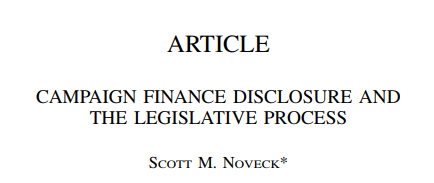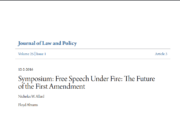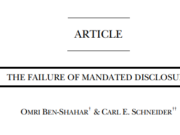This article analyzes an underappreciated and oft-overlooked method of campaign finance regulation: the use of reporting and disclosure requirements. Although disclosure has long been overshadowed by more prominent forms of campaign finance regulation, disclosure requirements have recently begun to receive new attention as the Supreme Court has signaled an increasingly skeptical attitude toward direct restrictions on the use of campaign funds. This Article demonstrates that both sides of the campaign finance debate have failed to recognize the full range of possible disclosure schemes, and it argues that a particular set of disclosure requirements can have a much more dramatic effect on the legislative process than has previously been recognized. Applying these insights, the Article shows that a carefully crafted disclosure scheme can offer an effective solution to the problem of quid pro quo corruption (i.e., political bribery) and can overcome serious constitutional concerns about retaliation against those who support unpopular views, while at the same time providing public officials with more detailed information about the needs and preferences of the citizens they represent.














